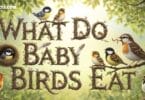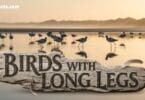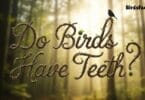Ugly Birds-Top 10 Ugliest Birds
Beauty is in the eye of the beholder, but it’s probably safe to say that the birds listed here are considered ugly and even scary by most people. This doesn’t mean that they have no place in the world or that those that are endangered should not be as fiercely protected as the peacock or the golden-rumped Euphonia. Nor or they unhappy. Indeed, they are as happy as any other bird, including larks. But truly, the birds described below are frightful to behold. Here they are:
1: Certain Parrots
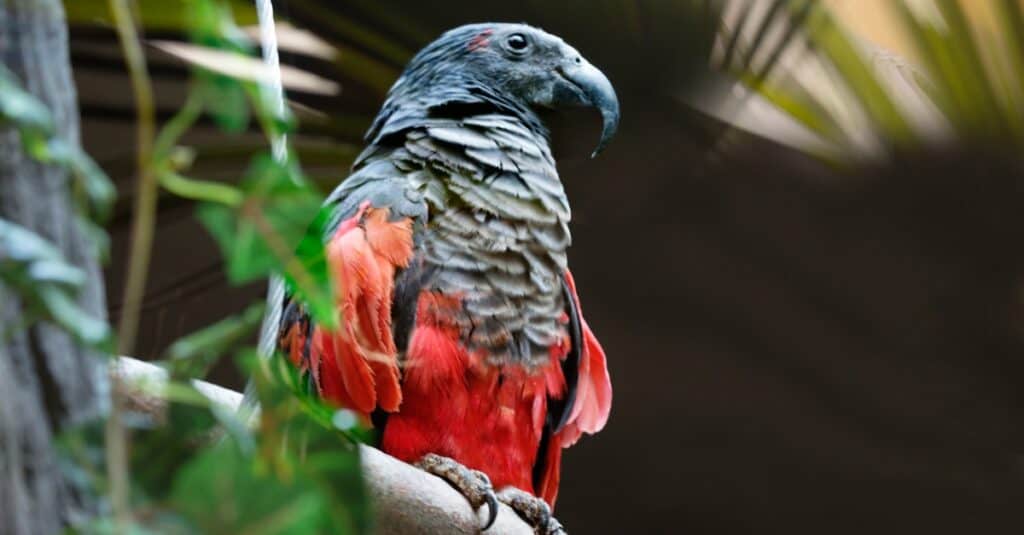
Ugly Birds
Parrots are not necessarily ugly. Indeed, many are beautiful, with brilliantly colored feathers, but Oscar was different (Oscar is a girl, by the way). She was or is a cockatoo who suffered from beak and feather disease. Her feathers hurt when they came in, so she simply pulled them out. She only had a few on her head because she couldn’t reach them. Because of her condition, she looked like a scrawny plucked chicken. Yet, Oscar was happy and otherwise healthy.
Nelson the kea parrot was ugly as a baby. His face looked like it was covered in half-cooked egg yolks and his eyes were swollen, black, and half-shut as if he’d gone the distance with the heavyweight champion of the world. He was measly and half-naked, with tufts of wiry down all over. Hatched in a German zoo, Nelson’s mother rejected him, but probably not because he was ugly, as he was only a few degrees uglier than other newly hatched parrots. But Nelson most likely grew up to be a regular kea parrot. This species of parrot native to New Zealand isn’t the prettiest in the world, but it won’t crack a mirror either.
The vulturine parrot is also an ugly bird, but ugliness is normal to its species. Black with a red breast, its bald head, bare face, and hooked beak cause it to resemble a vulture. This isn’t because it eats carrion but because it needs to plunge its head into overly ripe fruit. It’s native to the mountain forests of New Guinea.
2: Kiwi

Ugly Birds
This bird, the very national symbol of New Zealand, doesn’t look like a bird at all. It is flightless, and its chicken-sized body is covered with what might as well be shaggy brown hair. It is nocturnal and rests in a burrow during the day. It has tiny eyes that don’t see that well, but this is made up for by the bird’s acute sense of smell. This is helped by a very long beak with nostrils right at the tip. The kiwi uses its bill to probe the earth for earthworms and other invertebrates, though it also eats berries and seeds. The female lays an egg that’s about a fifth of her body weight. After this, she figures her job is over, and the male of most kiwi species incubates the egg and raises the chick.
3: Southern Screamer
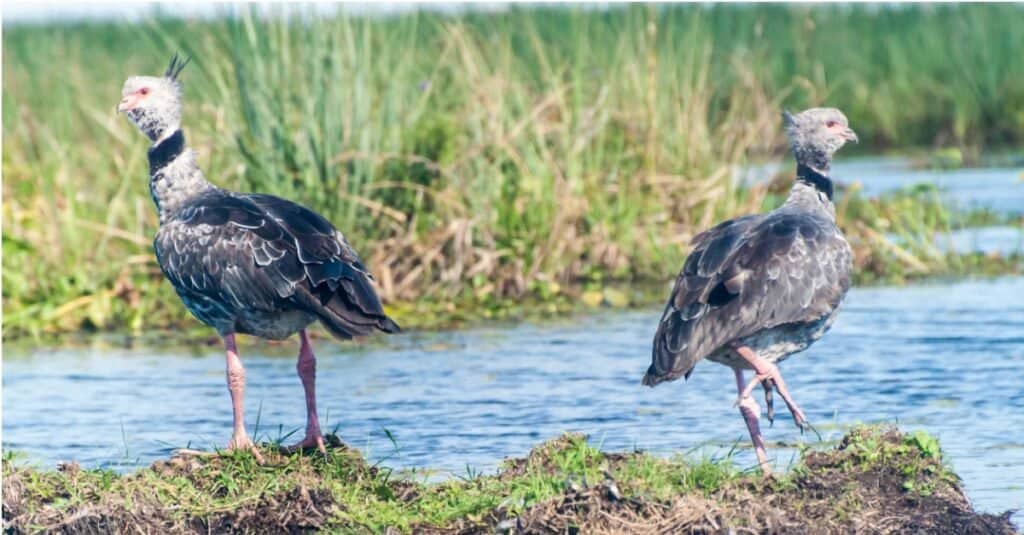
Ugly Birds
This ugly bird is native to South America from Brazil down to Argentina. It has a disproportionally tiny head on a goose-sized body, with a minuscule hooked beak. Its feet are huge, and it has long toes for walking around the marshes of its habitat. Not only this, its wings have spurs on the leading edge that the bird uses in combat with other screamers and would-be-predators. The Southern Screamer gets its name because, well, it screams, both on land and as it flies. Because of this and its varied and easy-to-provide diet of leaves, buds, seeds, and other plant material, it is sometimes tamed and used as a “guard bird.”
4: Muscovy duck
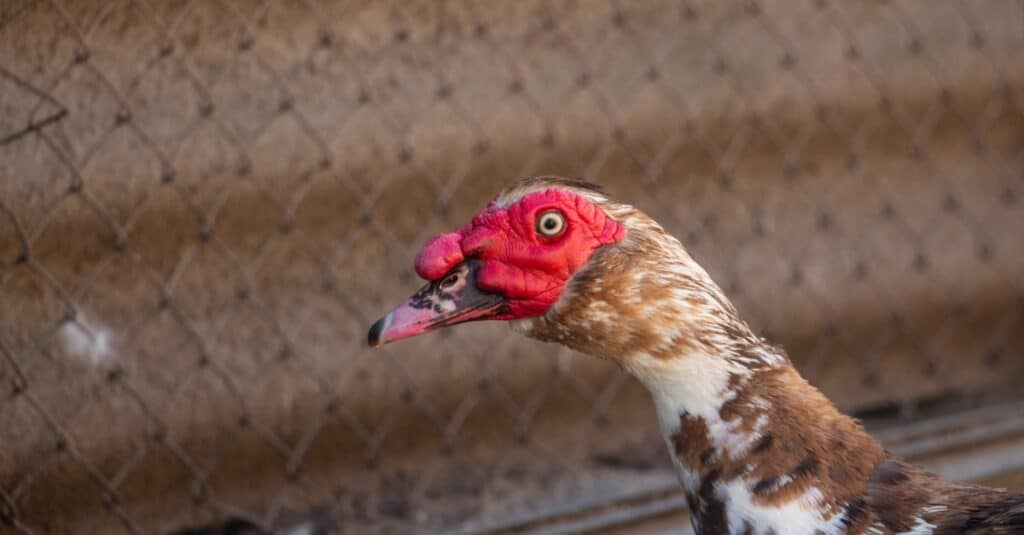
Ugly Birds
Even Linnaeus, the renowned taxonomist, didn’t have much good to say about this duck’s looks, even though the domesticated Muscovy duck is much prized because it’s a big, relatively quiet, easy to raise bird whose meat tastes more like beef than poultry. Yet the faces of Muscovy ducks do present with fleshy red caruncles that make their looks unfortunate. Males also have crests they use to impress females. Other than this, the plumage of these ducks can be quite beautiful, with the male’s darker feathers being nearly iridescent. If only a person didn’t have to look at those faces.
5: Shoebill
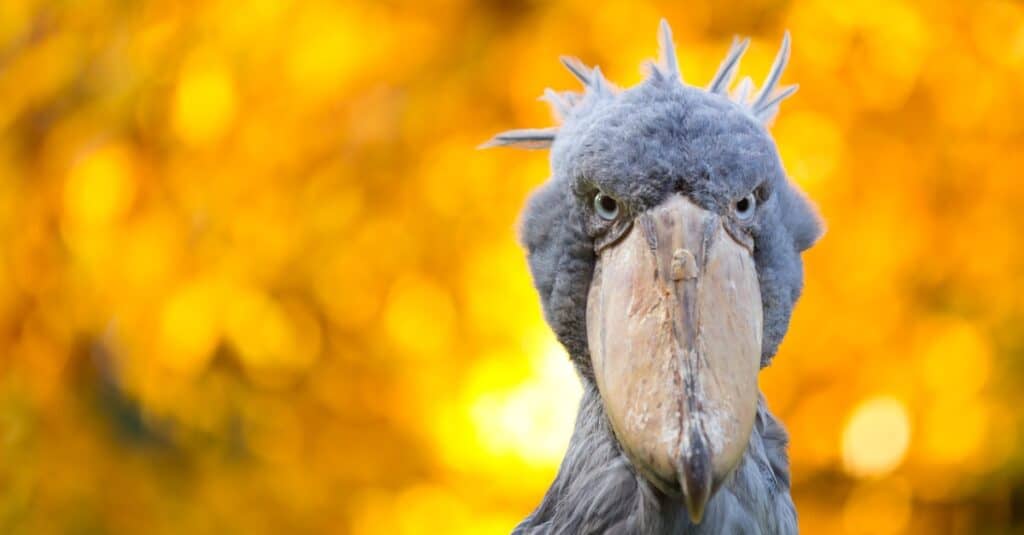
Ugly Birds
The shoebill’s looks are mostly the fault of its bill, which is huge and resembles a wooden Dutch clog with a hook at the tip. The tip helps the bird dispatch its prey, which includes fish, frogs, lizards, turtles, snails, rodents, and birds smaller than itself. The shoebill stands about 4 feet tall but can be a foot taller. It’s found around freshwater papyrus marshes in east and central Africa. Despite its size, it doesn’t weigh much and its splayed-out toes allow it to walk over water plants. Its eyes are small, cold, and yellow, and one of its calls sounds like a machine gun going off. Yet, despite its looks, the shoebill is surprisingly tame and friendly toward humans.
6: Great Potoo
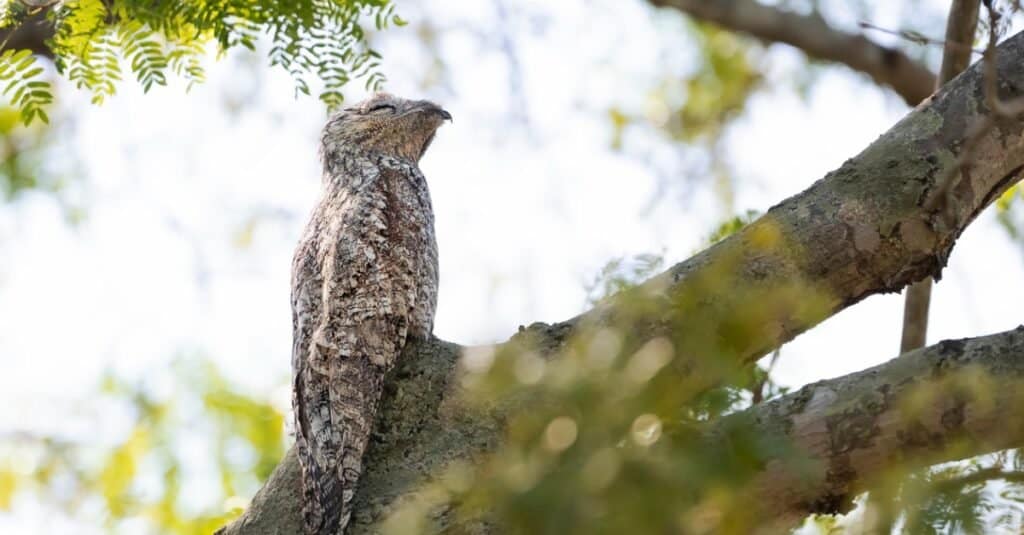
Ugly Birds
This gray feathered nocturnal bird of South and Central America and the Caribbean would be perfectly ignorable if not for two things. They are its eyes and its mouth. The huge eyes in the disproportionally large head resemble, at a distance, nothing less than the scary button eyes of Coraline’s Other Mother. The potoo’s bill is tiny, but when the bird opens its mouth it resembles some alien horror come to gulp down some hapless thing 10 times its size. Another thing that makes the admittedly harmless potoo scary is its call, which is described as a hair-raising blend of a moan and a growl heard all night long throughout the humid forests where it lives.
7: Vultures
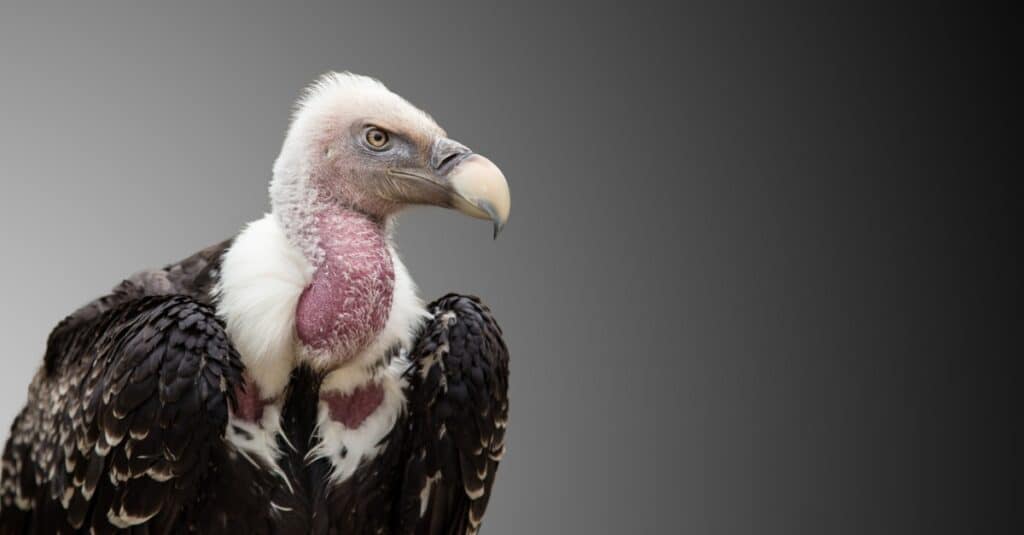
Ugly Birds
Vultures are ugly. It does not matter that they are essential or even if they are magnificent like the condor. Their looks and their habits are frightful. Most breeds of vulture have bald heads and necks that make poking around in decaying carcasses less messy. The shaggy feathers at the top of its head and below its bare face and neck somehow serve to make the Egyptian vulture even uglier. It doesn’t help that it steals baby ostriches and ostrich eggs. The lappet-faced vulture, native to Africa, is an especially hideous bird, for its eyes are beady, and it gets its name from the loose folds of naked skin that hang from its neck. Vultures have crops that bulge as they store their ghastly food and large feet with serious talons. Some breeds of vultures urinate over their legs to cool themselves off and vomit when they feel threatened. For vultures, it’s just ugly all the way down.
8: Hornbills

ugly birds images
Most breeds of hornbill are ugly to the point that bright colors and interesting patterns on their bills and plumage don’t help much. Found in Asia, Africa, and Melanesia, they have huge, downward curving bills. Some species, such as the great hornbill and the rhinoceros hornbill have a casque on top of the bill. The bill and the casque are so burdensome that the species’ first and second neck bones are fused to help the bird carry the weight. They are omnivorous and famous for the female being enclosed inside a tree cavity during the breeding season. There’s only a small hole where she receives food from the male and gets rid of waste made by herself and the chicks. When the baby hornbills are ready to fledge, the parents simply open up the cavity.
Especially hideous members of the hornbill family are the helmeted hornbill, the yellow-casqued hornbill, the black-and-white-casqued hornbill, the trumpeter hornbill, and the white-crested hornbill.
9: Hoatzin

Larry bird ugly
This prehistoric-looking bird is not only ugly, but it smells bad, which gives it its other names of sunbirds and tickbird. Found in the swampy or riverine forests of northern South America, this bird has a robust body and a tiny head with a spiky crest, a bare face, and maroon-colored eyes. It gets its “tickbird” name because of its weird digestive system. The hoatzin is an herbivore and it ferments food in its crop, much like a cow does in its first stomach. The stench comes from the fermenting food. Another weird thing about this creature is that a baby hoatzin is born with hooks on its wings to help it climb until it fledges.
10: Marabou Stork
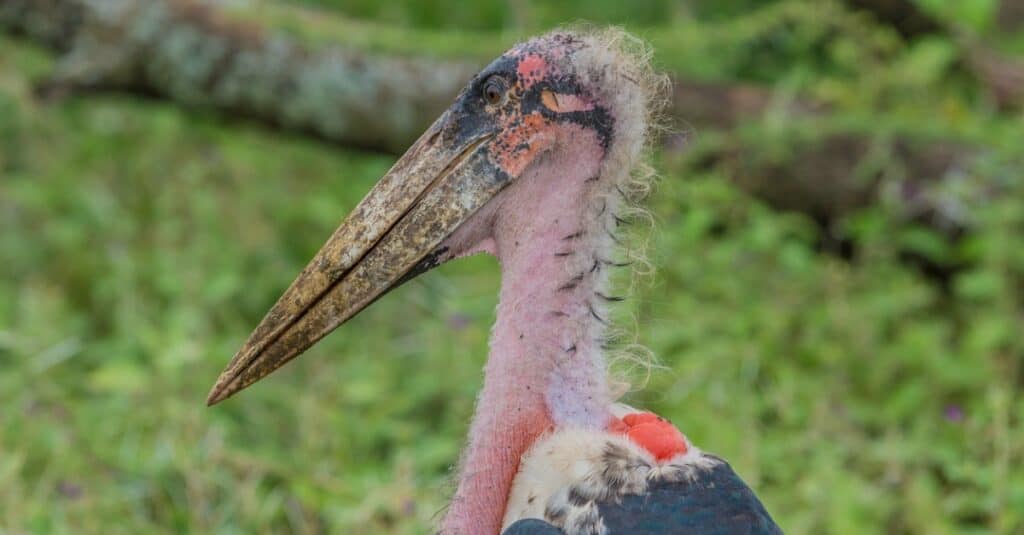
ugly baby bird
The marabou stork is so hideous that it looks extraterrestrial. Called the “undertaker bird,” because when viewed from behind its hunched black back and bald head reminded people of a mortician at work, this creature is native to Africa. Looked at from the front, this five-foot-tall bird presents a huge bill that is just the thing to tear open a dead body or help tear it open after the vultures have started on it. The bald head lets it get inside the carcass without the threat of besmirched head feathers. The stork also has a dangling gular sac that is blown up during courtship rituals and another sac on the nape of its neck. To cool off, it pants and voids its bowels over its legs, which is why they are often white. It is usual to come upon groups of these birds just standing around, doing nothing much.
Read More Article: Safflower Seed For Birds Feeders- Everything Explained
Read More Article: Do Birds Sleep (Everything Explained)
Read More Article: Birds Of New York- The Top 15 Birds Of New York With Pictures
Read More Article: Types Of Blue Birds- 5 Types Of Blue Bird You Need To See
Read More Article: How Do Birds Have Sex- Everything Explained
Read More Article: Can Dogs Eat Broccoli?


